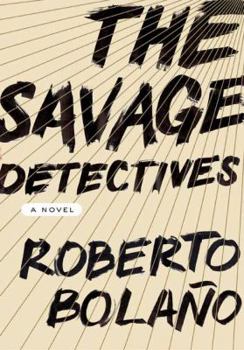Los detectives salvajes
Select Format
Select Condition 
Book Overview
Customer Reviews
Fantastic
So Visceral, So Real
Lives of the Poets
If you're curious about Roberto Bolano, this may be a good book to start.
Not since Borges
Los detectives salvajes Mentions in Our Blog

With your toes in the sand, the sun on your face, and the roar of the surf drowning out your worries, reading at the beach is a double dose of escape. But what makes the perfect beach read? Depends on the reader. If you're looking for a really big book to get lost in, here are 29 beach-perfect doorstoppers for you.

A few weeks ago, The New York Times Book Review published a piece entitled The 100 Best Books of the 21st Century and it has garnered lots of attention. Here's a look at the list, along with highlights, a reading guide, and more.

Our newest survey found that Americans are consuming 50 percent more internationally produced TV shows and books than they were five years ago. This proved to be true across generational and gender lines. One of the most popular forms of international content is manga, a style of Japanese comic books.






